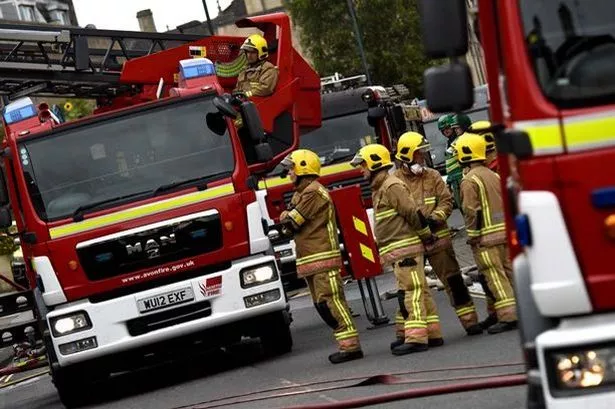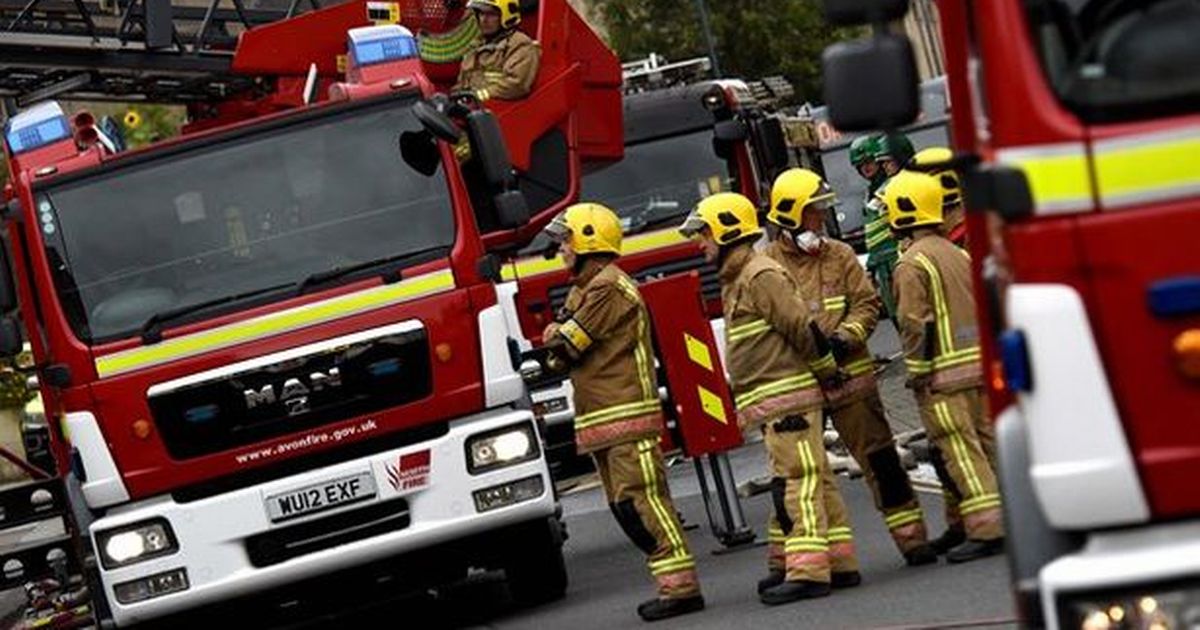Fire chiefs are calling for action Avon Fire and Rescue Service firefighters(Image: Stock photo)
Avon Fire and Rescue Service firefighters(Image: Stock photo)
Fire chiefs have called for businesses, landlords, organisations and members of the public to do more to reduce the number of false alarms they are called to.
Avon Fire and Rescue Service warned that every time fire crews rush to a call-out they don’t need to attend, there’s a risk there could be a real emergency somewhere else that they don’t get to in time.
The call came as new figures revealed that in some parts of Bristol more than half the fire brigade call-outs are actually false alarms, triggered by faulty fire alarms, calls about controlled burning, and instances where cooking or burning toast sets off a building’s fire alarm that is linked to an automatic response from the fire service.
A spokesperson for Avon Fire said they call false alarms ‘unwanted fire signals’, which are classified as an incident when a fire alarm system is activated, prompting a response from the fire service, but no fire or emergency is actually present.
“These false alarms can be caused by human error, faulty or poorly maintained equipment, or systems that aren’t compliant with current fire safety regulations,” the AFRS spokesperson said. “Every time a fire crew is called out to a false alarm, it takes away valuable resources that may be urgently needed elsewhere. The impact of these incidents extends further than people might realise.
“Firefighters and emergency vehicles are diverted from real emergencies, where every second counts. Evacuations caused by false alarms can bring operations to a standstill, affecting productivity and service delivery,” she said.
“Emergency vehicles responding at speed to unnecessary callouts create avoidable risks on the road. Each false alarm carries a cost in time, equipment, and operational resources that could be better used elsewhere.
“Everyone has a role to play in preventing false alarms and helping to keep our community safe,” she added. The fire service is calling on people and building managers to regularly maintain and test fire alarm systems, ensure systems complies with current fire safety standards, and train people in that building on fire safety procedures.
The call came as a deep dive into Avon Fire Service statistics on false alarms reveal a surprising disparity in the issue in different places in the city.
On the statistics website Bristol Uncovered, Chris McEvoy found that across Avon, the most common reason for a false alarm was down to people setting off a building’s fire alarm system from cooking or burning toast. That accounted for 488 call-outs since the start of 2024, according to the analysis.
Overall, more than a third of all the call-outs attended by Avon Fire and Rescue were false alarms – with around 2,750 representing 38 per cent of all the calls. That’s more than the actual real fires Avon Fire were called to, with just under 2,000 since the start of 2024. The other third were ‘special service’ – which could be anything from rescuing people or animals from water, to traffic collisions or people stuck in lifts.
Mr McEvoy found that more than half all the times Avon Fire and Rescue were called to emergencies in Redland, Clifton Down and Cotham wards in Bristol, they proved to be false alarms.
